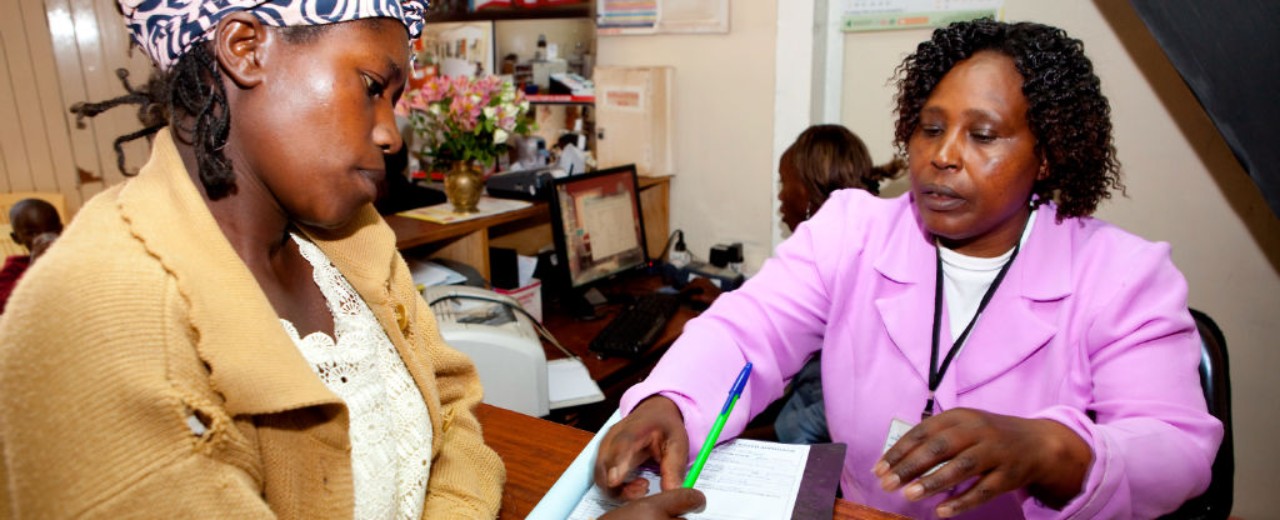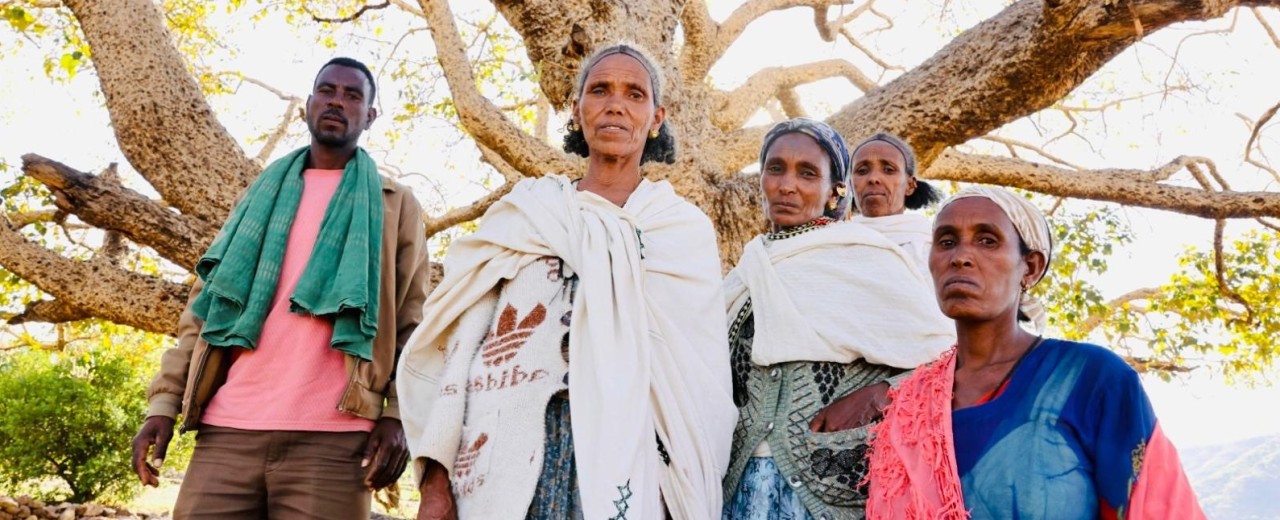
After severe armed conflicts in northern Ethiopia, many people in Ethiopia are living with trauma. Women in particular have suffered severely, including rape. Until now, there has been insufficient psychosocial support. On behalf of the German Federal Government, KfW is now providing funds to develop counselling services, particularly for women. These are intended to help reconcile society and break the spiral of violence.
Depression, trauma and post-traumatic stress disorders – in Ethiopia, many people, especially women, suffer from psychological problems. These are the consequences of the long-standing conflicts that have shaken the country in recent years. Climate change is exacerbating social tensions, as droughts and floods mean that less and less land is available for development. The fight for resources is one of the reasons for the armed conflicts, which continue to flare up despite a ceasefire agreed in 2022. The people in Ethiopia are very poor, and the situation is not improving. According to the Human Development Index, which compares human development across the globe, Ethiopia fell from 173rd place (from a total of 189) in 2019 to 176th place in 2024.
The civil war in the Tigray, Amhara and Afar provinces between 2020 and 2022 cost over half a million lives and forced millions to flee. In autumn 2022, there were still 2.6 million internally displaced people, most of whom have still not been able to return home. By December 2024, the number of internally displaced persons had even risen to 3.3 million. Women are among the main victims of the conflict, as sexualised violence was used as a targeted weapon. There have been at least 10,000 rapes, and the number of unrecorded cases is high. But many women in Ethiopia are also at risk in their everyday lives. In a survey, 35% of married women said they had experienced physical, psychological or sexual violence from their partners. In addition, female genital mutilation is widespread. The bad experiences have consequences. According to an estimate by the World Bank, almost one in two Ethiopian women suffer from post-traumatic stress disorders, and the proportion of internally displaced people is even higher. However, it has been virtually impossible to help them to date, as psychosocial counselling and trauma therapy for victims of violence have only been available to a very limited extent.
The urgently needed aid offers are now also being established with support from Germany. In the future, psychosocial counselling will be offered at hospitals, health centres and many of the 61 one-stop centres nationwide in the conflict-affected regions. These centres not only integrate health care, but also therapies and legal advice.
KfW is making EUR 32 million available for this purpose on behalf of the Federal Ministry for Economic Cooperation and Development (BMZ). The funds are paid into a World Bank fund, which designed the project together with the Ethiopian government and closely monitors its implementation. It pays these funds to the Ethiopian government, advises them and commissions accompanying studies. The East African country's Ministry of Women and Social Affairs is implementing the project and is being advised by the United Nations Children's Fund, UNICEF.
In order to be able to expand the range of psychosocial assistance quickly and efficiently, employees of the government, health stations and one-stop centres are being trained first, with social workers also receiving qualifications. The training not only consists of modules on psychosocial support, but also includes information on medical forensic examinations and cross-agency cooperation. Healthcare personnel are supervised. Employees of the police, courts and administrations are made aware of how to treat victims of gender-based violence with consideration.
In Tigray province, the programme has already been rapidly expanded in a cooperation between the World Bank and UN organisations. 93% of the known women affected by violence were able to receive care and treatment there; this clearly exceeds the original target of 60%. KfW funds are used in the provinces of Amhara and Afar.

To ensure that women can regain a foothold in society and live independently after therapy, the project also includes general life counselling, which includes dealing with finances and setting up microenterprises.
Consultations and therapies help to better deal with and process experienced violence. The women emerge stronger from the meetings and are better able to cope with stress in the future. In the medium term, the offer is to be extended to men, such as returning fighters. At a higher level, psychosocial support contributes to promoting reconciliation in society and breaking the spiral of violence.
Share page
To share the content of this page with your network, click on one of the icons below.
Note on data protection: When you share content, your personal data is transferred to the selected network.
Data protection
Alternatively, you can also copy the short link: https://www.kfw-entwicklungsbank.de/s/enzByRF-
Copy link Link copied